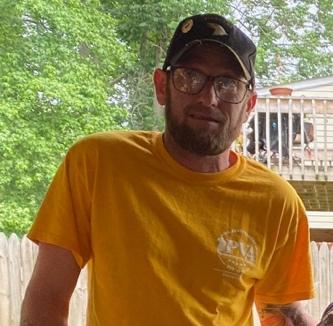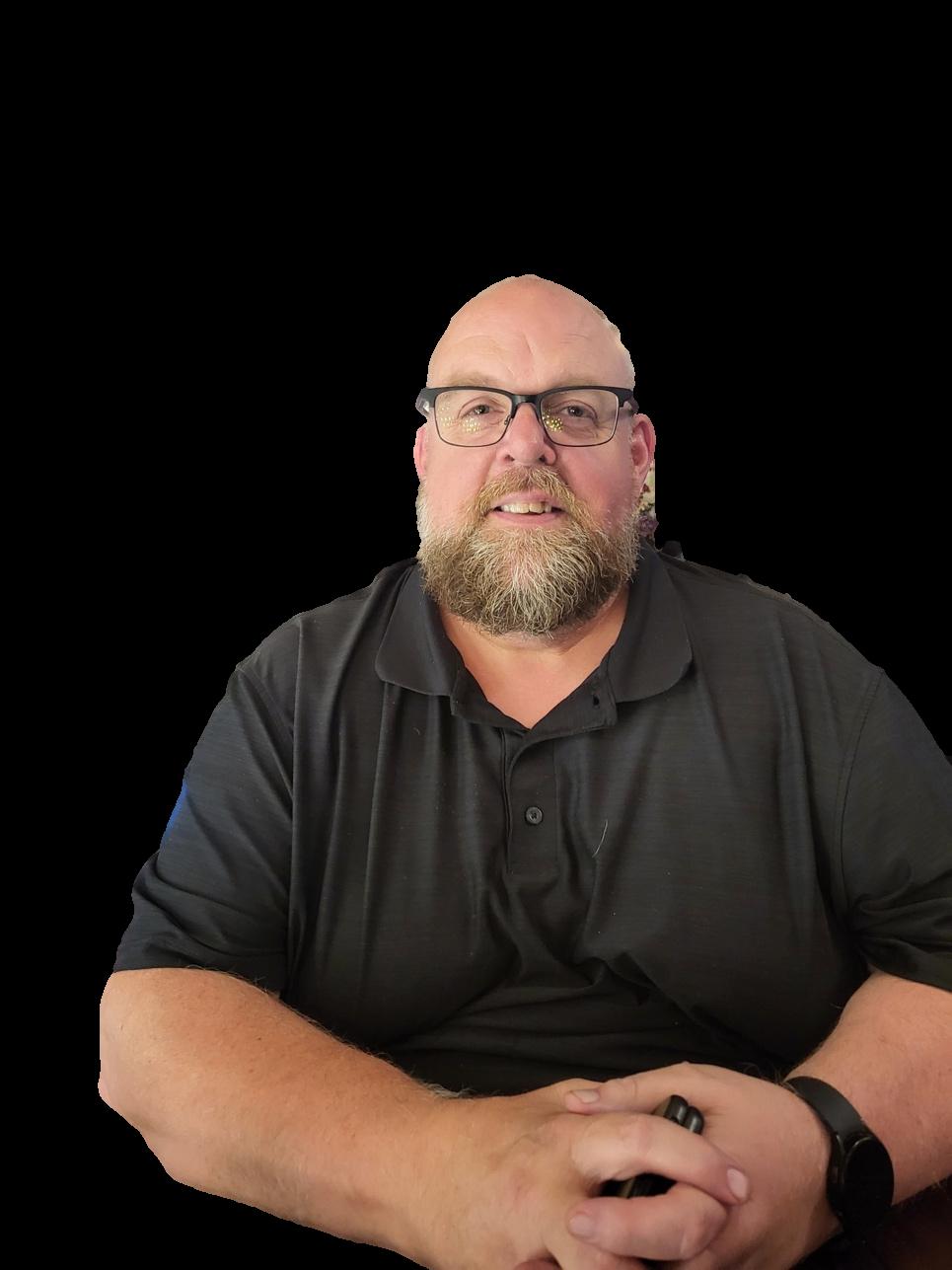
3 minute read
MATTHEW PEELING
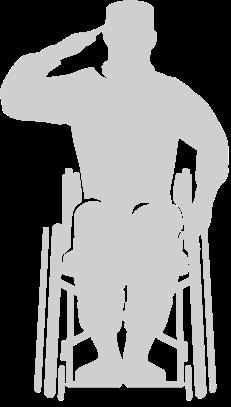

Advertisement

Dear Friends,
I wanted to take this opportunity to say “thank you” for the loyalty and support over the past year from our Members and Funders. The Colonial Chapter of the Paralyzed Veterans of America’s Fiscal year covering October 1, 2021, to September 30, 2022, was another extraordinary year full of inspiration and achievement of Member involvement. This report contains information on all program activities conducted by Colonial PVA during the above- mentioned period. We extend our deepest appreciation to you – our dedicated Members, Community Partners, Friends, Staff, Advisory Committee, Volunteers and Board Members. With your help, we remain ranked among the finest with our outreach to our members, many programs to enrich the lives of all Veterans and others with Paralysis.
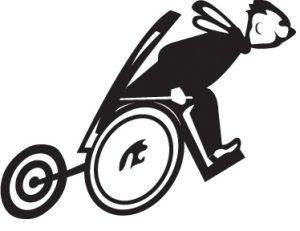
This annual report summarizes the generosity of those who support the us through philanthropy and is a snapshot of the enthusiasm for the work underway. Our vision is to bring people with, and without disabilities together, in equal partnership, to build and promote a community of openness. We aspire to do great things and continue to attract others with those same aspirations.
On behalf of the entire Colonial Chapter of the Paralyzed Veterans of America, I want to thank you once again for your interest in our vision and our work. I hope this report compels you to stay in touch with our progress and continue to support our Mission as we prepare for another year.
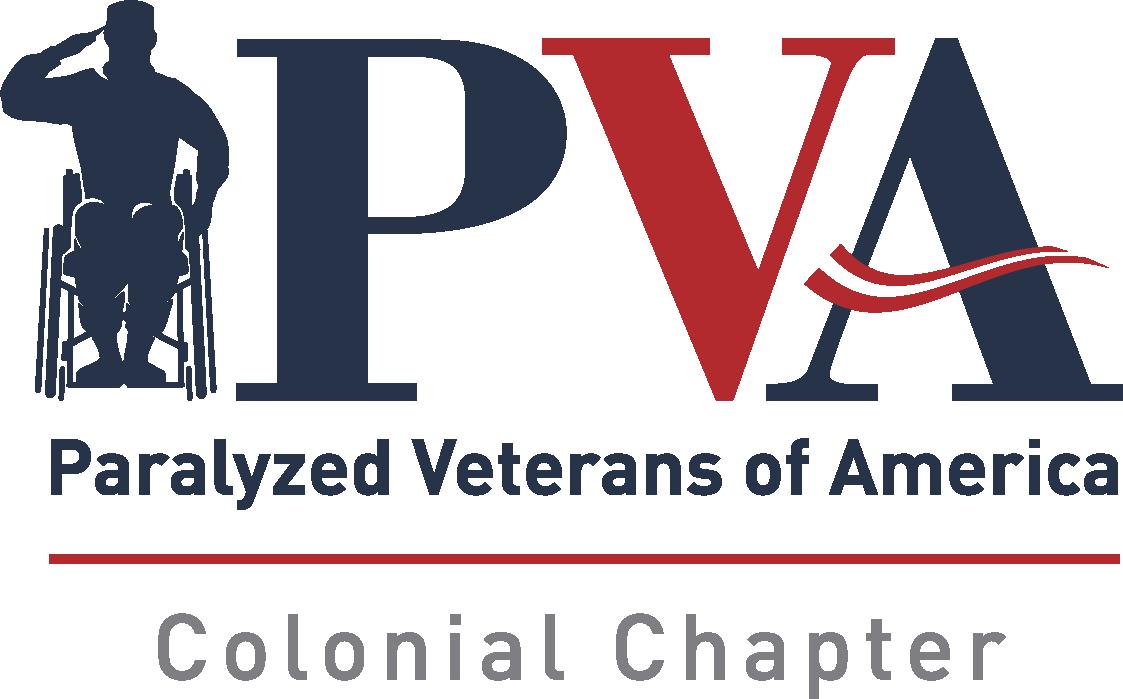
Respectfully Submitted,
MatthewPeeling President, Colonial PVA
Paralyzed Veterans of America (PVA) was originally founded by a band of service members who came home from World War II with spinal cord injuries. They returned to a grateful nation, but also t with few solutions to the major challenges they faced. These wounded heroes decided live, but to live with dignity as contributors to society. They created Paralyzed Veterans of America, an organization dedicated to serving veterans and to medical research, advocacy, and civil rights for all people with disabilities.
Since 1946, the PVA has been on a mission to change lives and build brighter futures for our seriously injured heroes. We have had a single-minded mission to empower our brave men and women to regain what they fought for: their freedom and independence. The Colonial Chapter of the Paralyzed Veterans of America, Inc. (Colonial PVA), was founded in 1968 and is a member of the PVA, a 501(C)3 veterans service organization, chartered by Congress in 1947. Colonial PVA advocates for: quality health care for our members and others with disabilities, research and education addressing spinal cord injury and dysfunction, monitoring of legislation which benefits veterans and individuals with disabilities, promotion of sports and recreation as a rehabilitative tool.
The Colonial PVA is dedicated to improving the quality of life for veterans with paralysis due to spinal cord injury or disease and the protection of their civil rights. We are committed to assisting paralyzed veterans by advocating for access to VA health care and barrier-free access to the community. Our goal is to ensure the health and well-being of our members and all paralyzed veterans through education, information and referral, medical research, and physical, psychological, and recreational therapy. The Colonial PVA is governed by a board of directors, including a President, Vice President, Secretary, Treasurer and 3 Board Members. The office staff includes an Executive Director, and a Deputy Director All meetings, including board, general membership, executive committee, and other committee meetings, are held at the chapter office, which is located at 700 Barksdale Road, Suite 2, in Newark, Delaware ALL Colonial members are encouraged to attend the board meetings, which are held on the second Wednesday of each month beginning at 11 a.m.
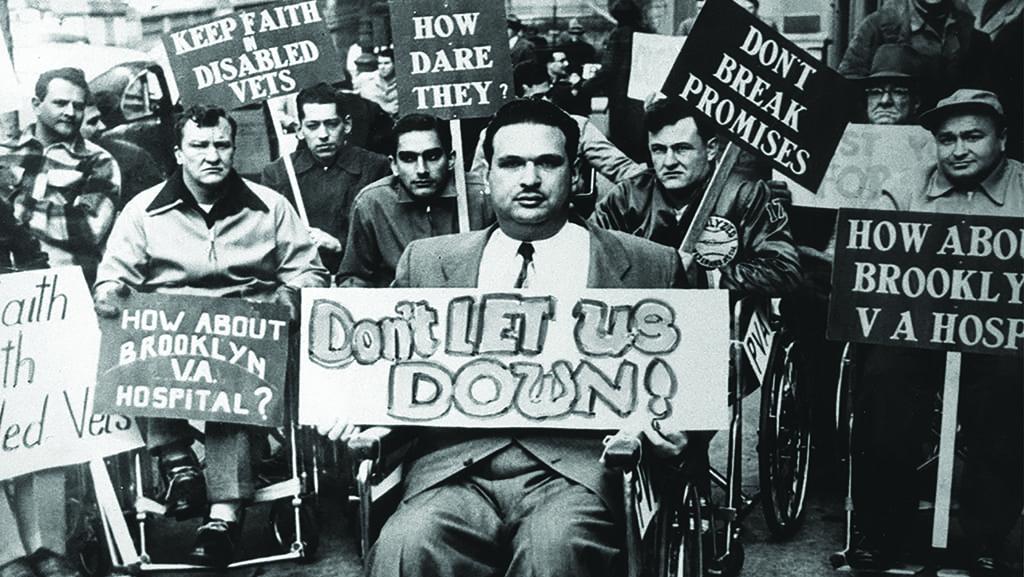
The Colonial PVA’s Executive Committee is a standing committee that is the driving force behind the Chapter. It has the power to act for the Board of Directors and consists of four voting members: the President, VicePresident, Secretary, and Treasurer. It is a small and agile committee that makes major decisions for the Chapter and resolves urgent issues as they arise. The Executive Director sits on the committee but does not have a vote concerning any Chapter business.

The Executive Committee meets more frequently than Board of Directors and holds emergency sessions on an as-needed basis in between board meetings. They oversee the entire organization and report to the Board of Directors. They help set the goals for the organization by creating the strategic plan which the Executive Director uses as a guide for the future. The Executive Committee then monitors and evaluates progress toward the company's strategic goals and initiatives and makes periodic and timely presentations to the full board on progress.
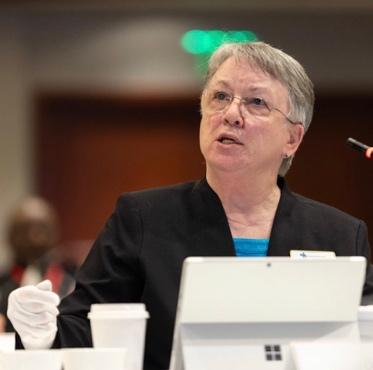
Advisory Committee Members
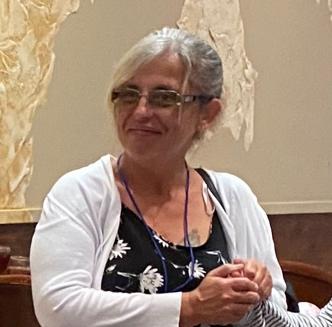
Raymond Torreon, Jason Spohn, Brian Hutton, Georgia Matoulas, Charles Marsh, Michael Ritmiller, Kim Dotson, Tim Besse, Dianna Neal, Jerrod Harris, Matthew Peeling, and Randy Golden.
Other Volunteers
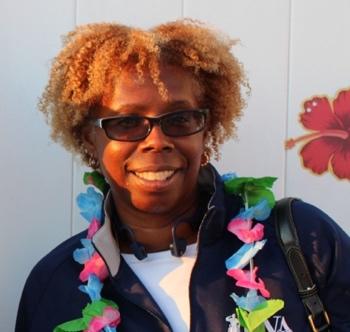
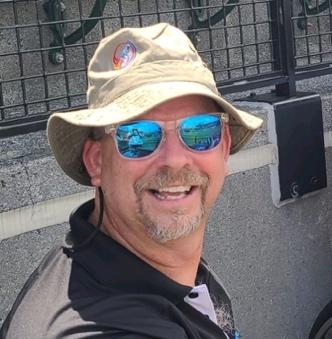
Kelly Spohn, Russell Hutton, Adrianna Hutton, Debra McCarter, Joseph Blum, Blake Widdoes, James Wade, and Robin Matthews
